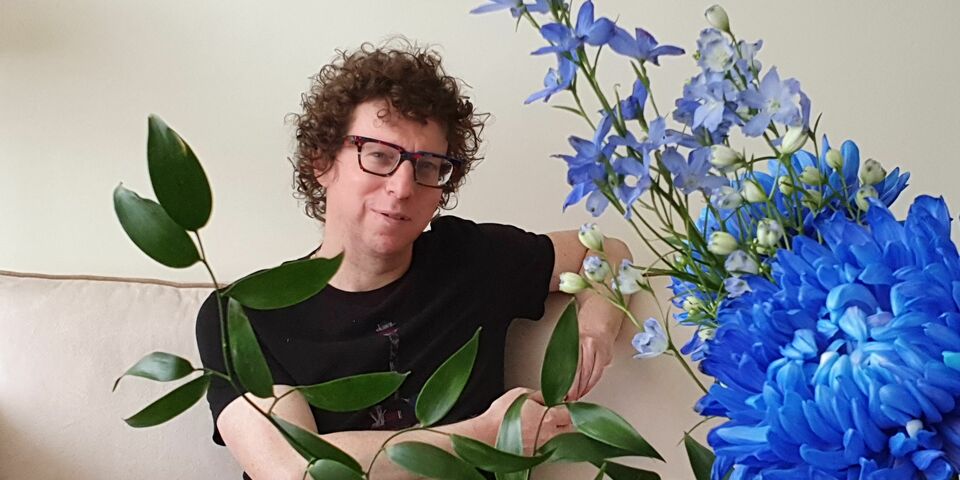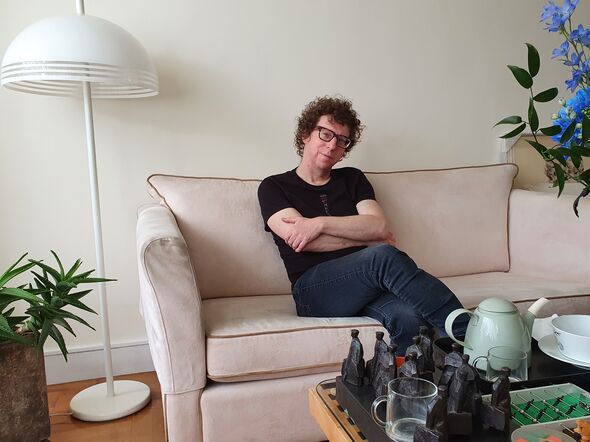AiR@TU/e Arnon Grunberg: “What is equality worth?”
AiR@TU/e, it could easily be a password but it is the short form the university is using to refer to a special program of education: Artist in Residence. This coming academic year this role will be held by the writer Arnon Grunberg. Cursor looked him up in Amsterdam and found the answers in the ensuing interview largely taking the form of further questions. The key question in the project is this: “How far should you go to create an equal society?”
Arnon Grunberg will be appointed as a guest lecturer for a period of two months, during which time he will carry out a special project with a highly diverse team. The project's mysterious title is Expedition Grunberg - The Ethical Casino. The writer is keen for the group to explore whether meritocracy is a workable concept. In this social model the socio-economic position a person attains is determined by their effort and skills rather than the good or bad luck that befalls them. As Grunberg puts it: “What are we prepared to pay, in money or effort or rules and regulations, to create a more equal society? Where should the limits of government intervention lie? How much lost liberty are we prepared for it to cost? You could think of society as a casino.”
The writer is already familiar with a good many Dutch universities. Not as a student, he is an autodidact, but since 2006 he has visited the universities in Delft, Leiden, Wageningen and Amsterdam (both the UvA and the VU) as a guest lecturer. He was pleased to find that the various institutions have different cultures; he refers to “a pleasant brutality” and “the epitome of politeness” and even “a climate of activism”.
What is home?
In Eindhoven Grunberg will meet our international and Brabantian campus community in all its guises - bachelor's and master's students, PDEng trainees and PhD candidates. Which twenty-five he will take with him on expedition will be decided following a selection round (registration deadline is August 1st). The brand new father– seven days before this conversation his first child, a son, was born – will be guided in his choice by the answers to question like ‘Who is your hero?’ and ‘What is home?’
Questions to which he himself has no easy answer. The house where he gives this interview is the house where he was born; the house where his girlfriend Niña Weijers and baby are currently staying is nearby in Amsterdam. Citizenship for the US is being prepared. What is 'home' for Grunberg? Here and now he is sitting on a soft couch, a dish of red fruit and a cup of ginger tea on the table in front of him.
Text continues below picture
This guest lecturer is looking forward to having discussions with as diverse a collection of people as possible. AiR@TU/e consists of six master classes, three public events and a weekend excursion (the corona crisis permitting). During the master classes the writer hopes to get to the core of meritocracy. “What is equality worth? Diversity appears to play an important role at TU/e. I'm thinking of the program designed to increase to proportion of women academics [the Irène Curie Fellowship, ed.]. When I heard about it in the national media, I thought it courageous, but also complicated. Would I want to be a person hired on the basis of positive discrimination? And why make women the focus? Could you similarly set a target of 20 percent of academics in a wheelchair? Which groups do you want to see represented?”
There is plenty more that's complicated at TU/e.
Cursor: “In the TU/e's culture I see a lot of student teams, competition takes the form of contests and startups are highly valued. Is your theme applicable here?”
Grunberg: “We can ask ourselves whether academics are running a race. Do we want to think about that? Spending a great deal of time applying for grants to be able to do research, what does that mean?”
Cursor: “TU/e is trying to put Artificial Intelligence on the map. The ethical aspects are a focus of attention, both alongside and within a TU/e institute in this field. This month, for example, a debate is being held on robot sex. Do robots have a place in a meritocracy?”
Grunberg: “Yes, this comes back to my question of what you can regulate. How far should a robot be allowed to go? Is it possible to set limits? Is it something you should be thinking of prohibiting? On what grounds? Will a new divide take the place of rich-poor; those who have access to AI and those who don't? Incidentally, I think that prohibiting sex robots is as hopeless an undertaking as prohibiting prostitution.”
Mountain walk
Asking more and more questions, this is Grunberg's style this afternoon. The first AiR@TU/e was Spinvis and this Erik de Jong took his students along on an expedition to CERN. Grunberg would like to go walking in Switzerland with the group. “Interesting ideas occur while walking. I want to go to Sils Maria, the mountain village where Nietzsche wrote some of his oeuvre, including Die fröhliche Wissenschaft. I want to discuss Nietzsche's ‘On the Genealogy of Morals’ with the students. I suspect this isn't something these TU/e students will automatically have read. Certain moral assumptions are regarded as self-evident; I would like to show that they are not self-evident and that everything depends on context.”
The question of what Grunberg himself understands by equality elicits a clear answer – with follow-up questions hot on its heels. “Equality exists when everyone feels respected and taken seriously. Is equality in the eyes of the law and in practice the same as in writing? Take the toeslagenaffaire [the Dutch childcare benefits scandal in which the claimants became victims, ed.]. Who has the guts, the energy and the confidence to bring an action against the state? I also want to read the Dutch constitution with the students.”
At the final presentation, before an audience, the product of the twenty-five students in whatever form it may take (machine, text, video, artwork, podcast, etc.) will be displayed and Arnon Grunberg will certainly give a lecture. “I'll give my view of the whole endeavor and will talk about what I myself have learned. Because undoubtedly that will happen. There is always an interaction between student/pupil and teacher, even at the level of a kindergarten. Otherwise something has gone awry in the knowledge transfer. And you may as well churn out an online lesson. This project is certainly more special than that.”



Discussion